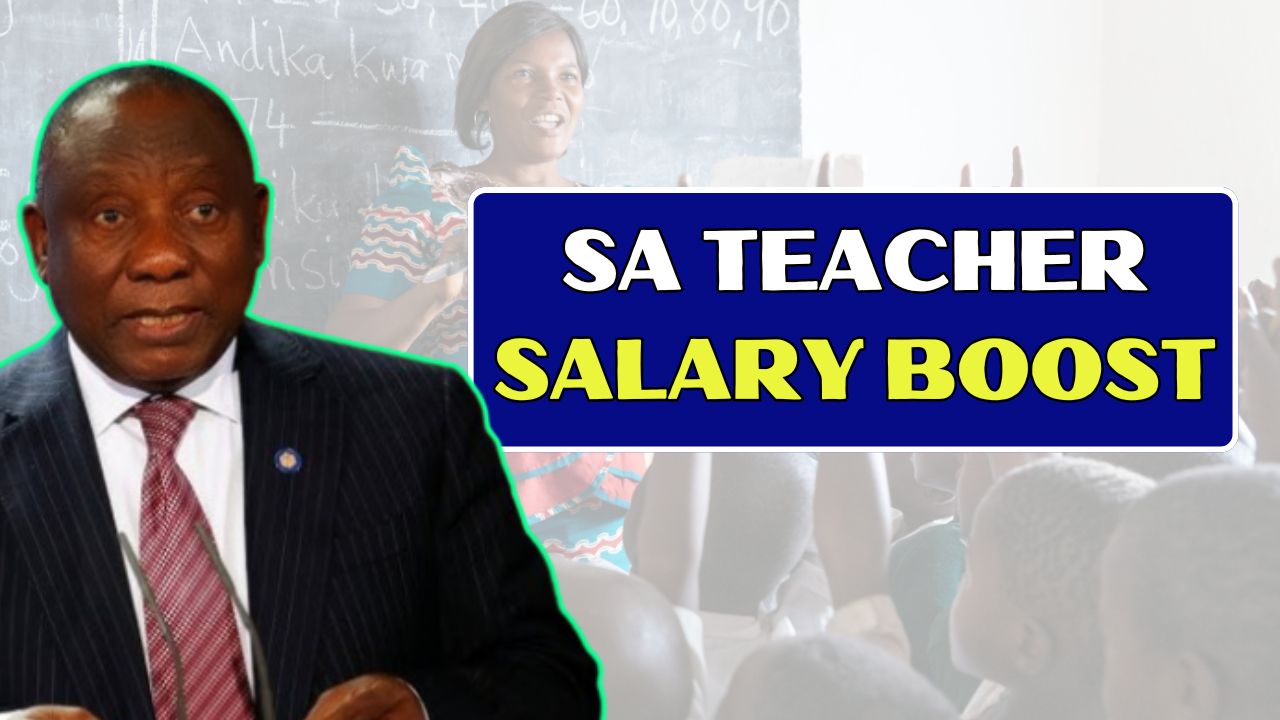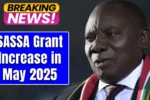In a major development for South Africa’s education sector, the government announced a 5.5% salary increase for public servants in 2025, including teachers. Though some headlines suggested that teacher salaries had “doubled,” the reality reflects a steady, government-backed move toward improving compensation and retaining skilled educators especially in underserved communities.
A Closer Look at the 2025 Teacher Pay Raise
South African educators have long voiced concern over inadequate salaries and challenging work environments. In June 2025, the Department of Basic Education formally gazetted the new teacher pay scales, implementing a 5.5% increase.
For early-career teachers, the annual salary now sits around R163,178, or roughly R13,600 per month. This marks a noticeable improvement from the previous R154,671 annual package. Senior teachers with years of service and higher notches are now earning upwards of R106,000 per month, signaling greater appreciation for experience and dedication.
Unions like the South African Teachers’ Union (SAOU), however, argue that the current adjustments are still falling short. They propose that teachers should be earning between R25,000 and R35,000 monthly to fairly reflect the cost of living, workload, and professional expectations.
Government’s Push to Retain and Support Educators
Beyond the salary adjustments, the National Treasury earmarked R19.1 billion over the medium term to prevent job losses and retain nearly 11,000 teaching positions. This funding aims to stabilize the system, which has faced pressures from both population growth and economic constraints.
In tandem with this, the government reintroduced a R500 million incentive specifically for teachers working in remote rural areas. This incentive seeks to address regional disparities and encourage skilled educators to take up positions in hard-to-staff schools echoing the role of India’s “Shikshamitras,” community-based teachers who often serve in similarly under-resourced areas.
Addressing the Teacher Shortage Crisis
South Africa continues to grapple with a teacher shortage, particularly in subjects like mathematics, science, and technology. The learner-teacher ratio remains a concern, with overcrowded classrooms impacting the quality of education. The 2025 financial commitments signal an acknowledgment from government that underfunding educators can no longer be sustained.
The return of incentives for difficult placements, combined with the broader salary increases, could mark the beginning of a long-term strategy to professionalize teaching and curb attrition. However, experts caution that improving salaries alone isn’t a silver bullet; investments in infrastructure, training, and teacher support systems remain just as critical.
Shikshamitras-Like Roles: Is South Africa Moving Toward Community-Based Education Support?
While South Africa doesn’t have a program identical to India’s Shikshamitras, the emphasis on incentivizing grassroots-level teaching mirrors similar goals. The revived rural incentive is designed to strengthen the presence of educators in marginalized communities a step toward a more equitable education system.
These roles, informal or auxiliary in nature, can play a vital part in community engagement and learning continuity. As the government experiments with teacher incentives and support models, there may be room to integrate more community-based education partnerships, especially where trained teachers are scarce.
What Comes Next?
While 2025’s salary increase is a clear move in the right direction, the road ahead remains challenging. Teacher unions are likely to continue pushing for higher wages and broader systemic reform.
With education remaining one of South Africa’s most critical social investments, policymakers will need to balance budget constraints with the need to uplift one of the country’s most essential professions.
For now, teachers can find cautious optimism in the government’s renewed attention and funding to their role. Whether this momentum leads to structural change remains to be seen, but 2025 could be remembered as a turning point in how South Africa values its educators.




